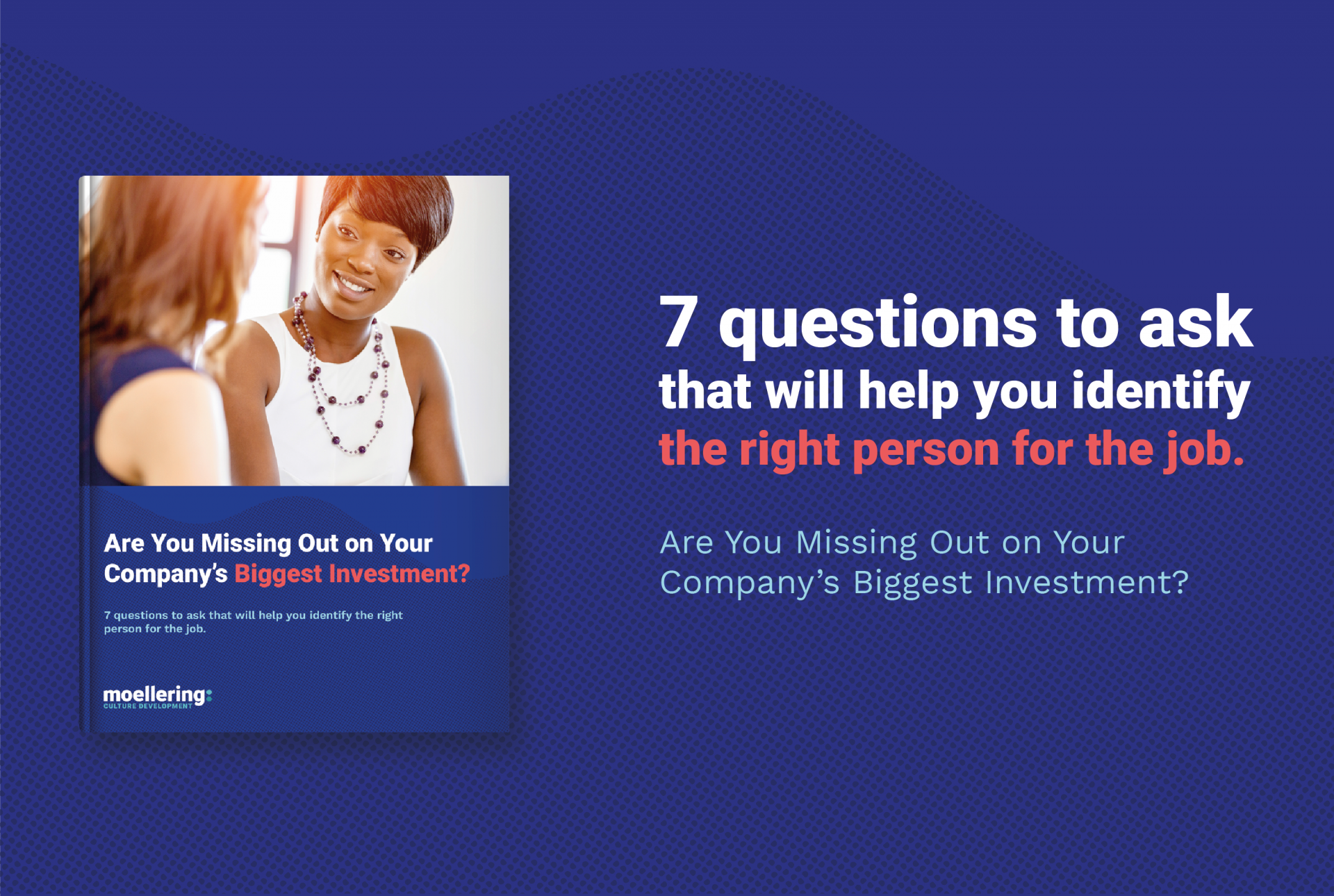
When it comes to putting together a top-flight organization, two questions immediately surface. How do I get great employees to join my organization? And, how do I get those employees to stay?
In a job market where unemployment is low and people have an abundance of choices, it has become much easier for workers to hop from job to job in order to find greener pastures. Those pastures may not always turn out to be so green, but simply the potential of a job change improving one’s outlook makes people take action.
Few metrics better illustrate a company’s culture than the loyalty of an employee.
According to blogger Nick Kasik, “Few metrics better illustrate a company’s culture than the loyalty of an employee.” So then, what are some of the underlying reasons people are drawn to a company and choose to stay when there are so many other options available to them? Two components need to be in place for employees to truly connect with the company for which they work. The company needs to be authentic, and it needs to be respectful of its employees by putting people first.
Authenticity
For a company to be successful, and for its employees to stay engaged, it’s extremely important for that company to be authentic. Be who you say you are. The company needs to define a mission, tie that mission to a few important core values, and then live those values every single day. Any successful company will lead through its actions. If a company takes on a “do as I say but not as I do” attitude, it shows through very quickly and can be a culture killer.
Everyone makes mistakes, from the lowest levels to the CEO. The key to overcoming the occasional mistake or bad decision is to own up to those mistakes, learn from them and move forward. That’s a two-way street.
Title shouldn’t give anyone a free pass when it comes to owning up to a mistake, but it can be very powerful when a leader says “I was wrong.”
Title shouldn’t give anyone a free pass when it comes to owning up to a mistake, but it can be very powerful when a leader says “I was wrong.” Doing so shows the human element behind the leader and can help increase authenticity as well as respect from the rest of the workforce.
There are times when an organization needs all its employees to step up and work as hard as they can to achieve a certain outcome. The workforce will rise to the task if they see that the leaders are stepping up and working equally as hard. This creates a dynamic of working together for a common goal, regardless of position or title.
Respect
At the end of the day, every employee wants to have the respect of his/her coworkers, managers and leaders. Regardless of how much work needs to get done, the employee wants to feel that in times of need, the organization puts the person above the work.
Good employees want to voice their opinions and have those opinions be heard.
Good employees want to voice their opinions and have those opinions be heard. These opinions may sometimes be in opposition with those of leadership, but any good organization will openly listen to the feedback and give it honest consideration. The employee will remain engaged for only as long as he/she feels heard and, ultimately, respected. Without respect, there can be no foundation upon which to build a company culture, and engagement can turn into disengagement overnight.
Final thoughts
The workplace can be a place where one thrives or just survives, depending on perspective. If the organization puts people first and truly respects them for what they contribute as people as well as their work production, the likelihood of that employee staying engaged (and employed) at that organization increases tremendously. And if the organization consistently practices its core values that rally around the company’s mission, those employees will not only want to stay, they’ll encourage their friends to join the organization too.
Article written by Dave Clark, Staff Writer and Editor at TTI Success Insights.

Download Our Free Hiring Guide.
In this guide, you’ll get access to the seven most important questions to ask when hiring someone. And yes, they go way beyond a basic job description.


